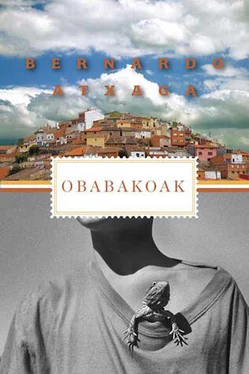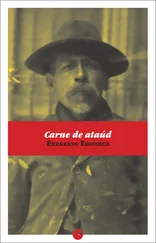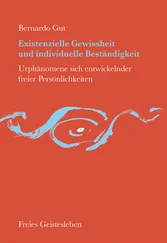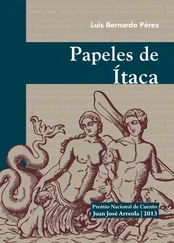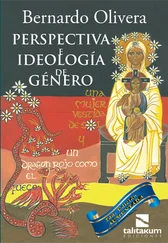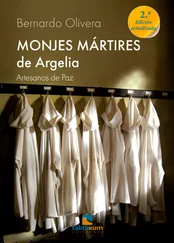Bernardo Atxaga - Obabakoak
Здесь есть возможность читать онлайн «Bernardo Atxaga - Obabakoak» весь текст электронной книги совершенно бесплатно (целиком полную версию без сокращений). В некоторых случаях можно слушать аудио, скачать через торрент в формате fb2 и присутствует краткое содержание. Год выпуска: 2010, Издательство: Graywolf Press, Жанр: Современная проза, на английском языке. Описание произведения, (предисловие) а так же отзывы посетителей доступны на портале библиотеки ЛибКат.
- Название:Obabakoak
- Автор:
- Издательство:Graywolf Press
- Жанр:
- Год:2010
- ISBN:нет данных
- Рейтинг книги:3 / 5. Голосов: 1
-
Избранное:Добавить в избранное
- Отзывы:
-
Ваша оценка:
- 60
- 1
- 2
- 3
- 4
- 5
Obabakoak: краткое содержание, описание и аннотация
Предлагаем к чтению аннотацию, описание, краткое содержание или предисловие (зависит от того, что написал сам автор книги «Obabakoak»). Если вы не нашли необходимую информацию о книге — напишите в комментариях, мы постараемся отыскать её.
Obabakoak
The Observer
Obabakoak — читать онлайн бесплатно полную книгу (весь текст) целиком
Ниже представлен текст книги, разбитый по страницам. Система сохранения места последней прочитанной страницы, позволяет с удобством читать онлайн бесплатно книгу «Obabakoak», без необходимости каждый раз заново искать на чём Вы остановились. Поставьте закладку, и сможете в любой момент перейти на страницу, на которой закончили чтение.
Интервал:
Закладка:
Bernardo Atxaga
Obabakoak
Translator’s Note
Obabakoak was originally written in Basque and published by Editorial Erein in 1988. This English translation is based on the author’s own Spanish version, published by Ediciones B in 1989.
I would like to take the opportunity to thank Bernardo Atxaga, Neil Belton, Annella McDermott, Faye Carney, and Philip Polack for all their help and advice.
The Game of the Goose
The Game of the Goose ( el juego de la oca ) (first mentioned on p. 134) is still played in other parts of Europe (for example, le jeu de l’oie in France, il gioco dell’oca in Italy). It is played on a circular board of sixty-three squares, the sixty-third being occupied by Mother Goose. The first person to reach square sixty-three wins. Geese also appear on other squares and if you land on one of these, you jump forward to the next goose and get another throw of the dice. If you land on less fortunate squares such as the maze, the prison, or the square symbolizing death (a skull or skeleton), you must either wait for another player to take your place, go back several squares, or return to square one.
Obabakoak
CHILDHOODS
Esteban Werfell
ESTEBAN WERFELL’S BOOKS, mostly leather-bound and ranged in serried ranks along the shelves, covered almost every inch of the room’s four walls. Those ten or twelve thousand volumes were the summation of two lives, his own and his father’s, and when he sat down among them to write, as he did on that February day, they created a warm enclave, a high protecting wall separating him from the outside world. Like many of the books, the old oak table at which he wrote was another reminder of his father; when still very young, he’d had it brought there from the family home in Obaba.
There was, however, one chink in that wall of paper, pages, and words, a window through which, while he wrote, Esteban Werfell could see the sky, the willows, the lake, and the little house built there for the swans in the city’s main park. Without really impinging on his solitude, the window made an inroad into the darkness of the books and mitigated that other darkness that often creates phantoms in the hearts of men who have never quite learned how to live alone.
For some minutes Esteban Werfell contemplated the cloudy, grayish white sky of that February day. Then, looking away, he opened one of the drawers in his desk and took out a notebook with stiff covers, bearing the number twelve, identical down to the last detail with the other eleven notebooks he had already filled, which contained his personal journal.
They were nice, those notebooks with their stiff covers, he liked them. He often used to wonder whether he didn’t misuse them, whether the stories and reflections he noted down in them did not perhaps turn them from the proper destiny that might otherwise await a notebook, especially one with stiff covers.
Perhaps it was foolish to think that way about something like a notebook. It probably was. But he couldn’t help it, still less when he was about to start a new one, as he was then. Why was he always thinking about things he didn’t want to think about? Once his father had said to him: “It isn’t the fact that you’ve got a few batty ideas that worries me, it’s just that they’re always the same batty ideas.” It was true, but he’d never understood why he was so drawn to such ideas.
Whatever the reason, the force propelling him toward them was very strong, and Esteban Werfell couldn’t resist the temptation to look up at the shelf where he kept the other eleven notebooks. There, half hidden among various geographical treatises, were the pages that bore witness to his life, the pages that contained all its most beautiful moments, its most important events. Not that they were a treasure. They’d lost any brilliance they once had. Rereading them was like perusing papers smeared with ashes; rereading them he felt ashamed and saw how the desire for sleep and oblivion still grew within him.
“Notebooks full of dead letters,” he murmured to himself. Even that expression wasn’t new.
But he couldn’t allow such thoughts to distract him from the task he’d sat down at the table to perform, nor, as had happened on countless other occasions, allow them to carry him from one sad memory to another, deeper and deeper down, to a land that, long ago — ever since his days as a student of geography — he’d named the Cape of Despair. He was a grown man now, able to fight against his own compulsions, and fight he would, by filling that new notebook.
Esteban Werfell picked up his pen — the one with the wooden shaft that he used only when writing in his diary — and dipped it in the inkwell.
“17 February 1958,” he began. He wrote in a beautiful, neat hand.
Outside the window the sky had turned completely gray and a fine, invisible rain was darkening the ivy that covered the swans’ house. The sight of it made him sigh. He would have preferred a different kind of weather. He didn’t like the park being empty.
He sighed once more, then dipped his pen in the ink again and bent over the notebook. I have returned from Hamburg — he wrote — with the intention of writing a memoir of my life. But I will not do so in the ordered and exhaustive manner of one who, perhaps quite rightly, holds himself to be the mirror of an age or a society. That, of course, is not my case and that is not how I will proceed. I will restrict myself to recounting what happened one afternoon long ago, when, to be exact, I was fourteen years old, and the important consequences that afternoon had for me. For a man already in the autumn of his life a few short hours may not seem a matter of much significance, but it is all I have to tell, indeed it is the only thing worth telling. And perhaps, given the life I have led, it is not such a small thing. After all, I dedicated myself to teaching and a life spent sitting at a teacher’s desk is a surer recipe for constipation than it is for adventure.
He sat back in his chair to wait for the ink to dry. The day was still gray, but the rain was much heavier than it had been a few minutes earlier and the sound it made, the dull murmur of rain on grass, was clearly audible in the room. And there was a change too around the lake: The swans had come out of their house now and were beating their wings with unusual vigor. He’d never seen the swans like that before. Did they enjoy getting wet? Or was it the lack of spectators that cheered them? He didn’t know, and it really wasn’t worth wasting time on such stupid questions, time better spent going over what he’d just written.
He never got off to a good start. The words refused to give faithful expression to what was demanded of them, as if they were lazy, or as if they lacked the energy to do so. His father used to say: “Thought is like sand and when we try to grasp a fistful of it, most of the grains trickle out between our fingers.” And it was true. For example, here he was proposing to write a memoir, but it would have been more exact to describe it as a meditation, because that in fact was what he wanted to write: a fine meditation on the events of one afternoon in his adolescence. And that wasn’t the only blunder, there were others.
He could, of course, cross out what he’d written and start again, but he didn’t want to. It was against his rules. He liked his pages to look immaculate, his as well as other people’s, and he felt proud that his scrupulousness had led his students to nickname him after a well-known brand of soap. Anyway, why worry about finding a good beginning? He’d make mistakes on the second attempt too. There would always be mistakes. It was better to press on, getting it right as he went along, gradually making amends for his poor beginning.
Читать дальшеИнтервал:
Закладка:
Похожие книги на «Obabakoak»
Представляем Вашему вниманию похожие книги на «Obabakoak» списком для выбора. Мы отобрали схожую по названию и смыслу литературу в надежде предоставить читателям больше вариантов отыскать новые, интересные, ещё непрочитанные произведения.
Обсуждение, отзывы о книге «Obabakoak» и просто собственные мнения читателей. Оставьте ваши комментарии, напишите, что Вы думаете о произведении, его смысле или главных героях. Укажите что конкретно понравилось, а что нет, и почему Вы так считаете.
